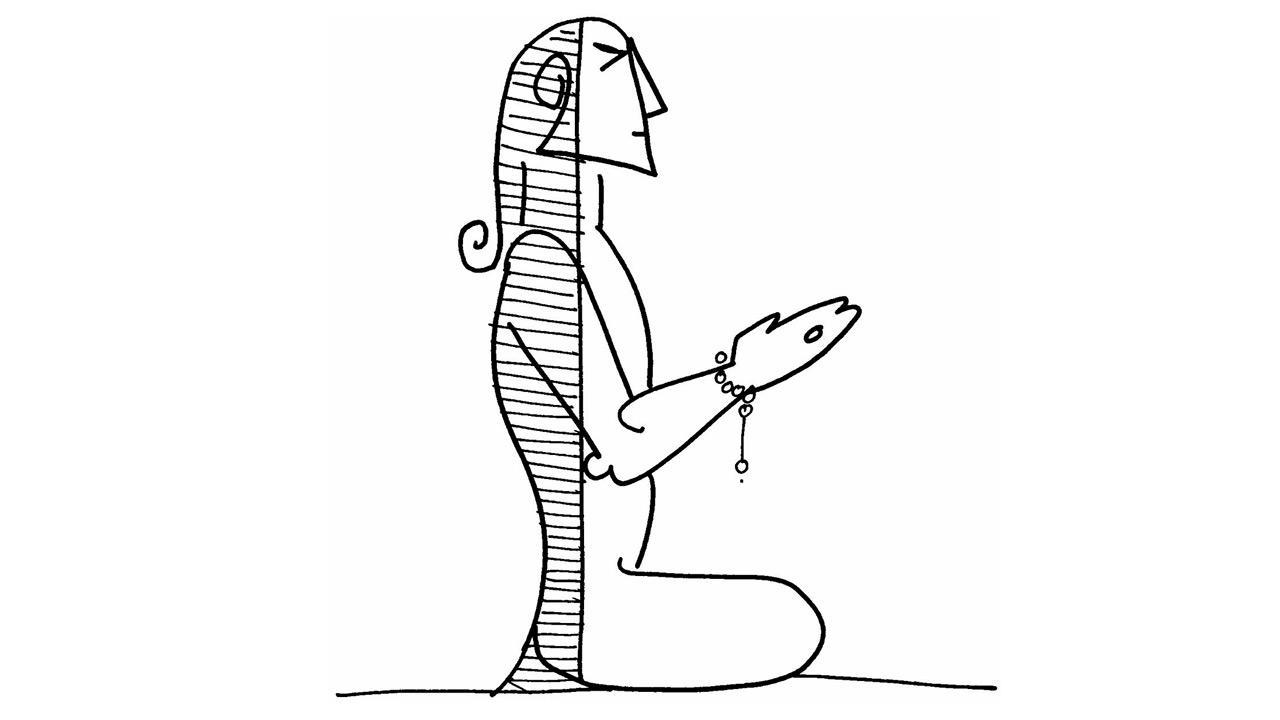They preferred woollen fabrics until the discovery of the Americas, from which cotton was sourced from regions like Mexico and the Aztec Empire

Illustration/Devdutt Pattanaik
 When Americans refer to the Western and Eastern worlds, they generally mean the Christian and Muslim worlds. Originally, the West was the Catholic Western Roman Empire, with its capital in Rome, while the East was the Eastern Orthodox Roman Empire, centred around Byzantium. Much of the latter was conquered by Muslims, so the East was seen as non-Christian realms.
When Americans refer to the Western and Eastern worlds, they generally mean the Christian and Muslim worlds. Originally, the West was the Catholic Western Roman Empire, with its capital in Rome, while the East was the Eastern Orthodox Roman Empire, centred around Byzantium. Much of the latter was conquered by Muslims, so the East was seen as non-Christian realms.
ADVERTISEMENT
After the spread of Islam, the African side of the Mediterranean became Muslim, and was seen as part of the Eastern world, where the northern side that stayed Christian was seen a Western. Thus, notions of East and West depend on who is writing the history. In colonial times, it was the Christian historians of Europe.
For Indians, Western thought encompasses all ideas originating west of the Hindu Kush, including both Persian and Greek ideas. It is the land of Varuna, the sea-god, as opposed to the East, land of Indra, the rain-god. The West was linked to the old mountain world from where Aryans came and the East was linked to the new fertile world where Ganga flowed. All Vedic rituals were performed facing the east. When temples were built, gods faced the east, the rising sun. Muslims of India turned west, facing Mecca.
Around 500 BC, Persian kings traded with India for elephants and sent horses in exchange. The Persian Empire was conquered by Greeks, who introduced Western ideas to Indians. The Persian Empire was eventually replaced by the Zoroastrian Empire of Parthians and Sassanians. Meanwhile, the Greeks were replaced by the Romans. The war between the Roman and the Persian Empires foreshadowed the later Christian-Muslim conflicts.
To bypass the Parthians and Sasanians, the Romans established a sea trade route through the Red Sea and Egypt. By 100 AD, Roman gold was pouring into India. When the Romans adopted Christianity around 300 AD, this flow of gold stopped. They cast out all pagans, many sculptors sought refuge through Persia to Gandhara, where they developed the Greco-Roman-influenced Gandharan Buddhist art. Buddhism travelled eastwards, shaping monastic traditions of Christianity.
With the rise of Islam in the 7th century, the European world refused to use cotton fabrics, as cotton-growing regions such as Egypt, India, and Mesopotamia were under Islamic control. They preferred woollen fabrics until the discovery of the Americas, from which cotton was sourced from regions like Mexico and the Aztec Empire.
The concept of the Western world is tied to monotheism, the belief in one God, and the idea of universalism—the belief that ideas originating from the West should apply to all communities around the world. These notions of universalism fuelled the expansion of Christian, Islamic, and secular ideas and played a key role in colonialism. This is why, globally, there has been a tendency to impose a single doctrine, a single way of thinking, a uniform education system, and a standard set of values.
The pushback against this, however, has come from the West itself, in the form of Islam, which rejects the secularism imposed by the West. This ancient conflict, which began between the Greeks and Persians, continued between the Romans and Parthians, the Christians and Muslims, and finally between post-Enlightenment Europe and more conservative forms of Islam.
Meanwhile in China, the Western world was India. Chinese novels speak of monks travelling to the West in search of original Buddhist scriptures and reaching Nalanda. The Pure Land (sukhavati) heaven of the Buddha Amitabha was also located in the West.
The author writes and lectures on the relevance of mythology in modern times. Reach him at [email protected]
 Subscribe today by clicking the link and stay updated with the latest news!" Click here!
Subscribe today by clicking the link and stay updated with the latest news!" Click here!







